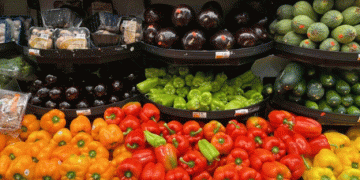In 2024, a notable shift occurred in the dietary habits of Dutch consumers: they purchased 2% fewer vegetables and 4% less fruit, leading to an overall 3% decline in the market. This data, reported by GroentenFruit Huis, underscores a departure from the long-standing health guideline encouraging “five a day.”
This reduction comes despite increased awareness campaigns and the availability of diverse produce options in The Netherlands. Some experts suggest that inflation and rising food costs may have influenced consumer choices, leading them to prioritize other items over fresh produce. Moreover, convenience trends might play a role, as ready-made meals and snacks often overshadow fresh fruits and vegetables in modern diets.
The decline in produce consumption has implications for Dutch farmers and the broader agricultural industry. A drop in domestic demand affects local growers who rely on steady sales within the country. It also raises concerns about public health, as reduced fruit and vegetable intake can contribute to nutritional deficiencies and health risks over time.
Interestingly, this trend in The Netherlands contrasts with global efforts to promote healthier eating. For instance, the United Nations’ Sustainable Development Goal 12 emphasizes responsible consumption, urging nations to adopt more sustainable and nutritious dietary habits. The Dutch case highlights the challenges of aligning consumer behavior with these goals.
The 2024 decline in fruit and vegetable sales in The Netherlands highlights the complex interplay of economic, social, and cultural factors influencing dietary choices. For farmers, agronomists, and policymakers, this trend is a call to action: innovative strategies are needed to make fresh produce more appealing and accessible. Educating consumers, addressing economic barriers, and fostering stronger connections between local agriculture and communities may be key steps in reversing this decline.































